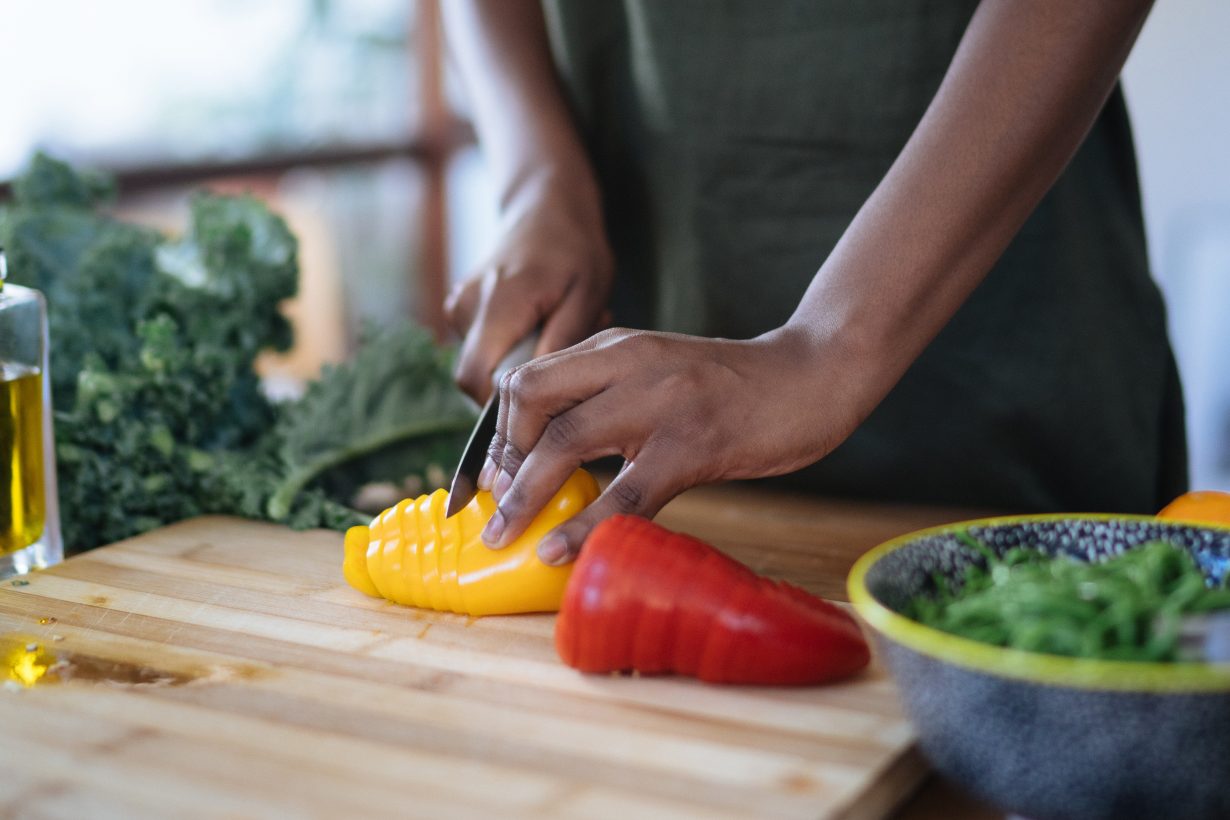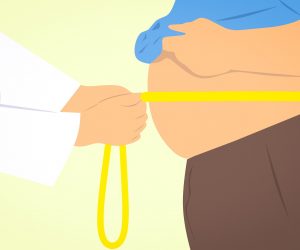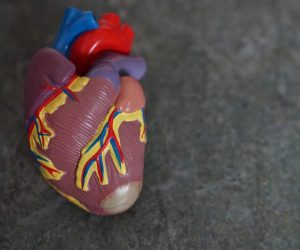
Eat to Beat Disease: How to Eat for Optimal Health
Dr. Josh Axe, DC, DMN, CNS – It’s no secret that what you eat has immense effect on your health, and it turns out you can actually eat to beat disease. No one know this better than Dr. William Li, MD, author of the book “Eat to Beat Disease: The New Science of How Your Body Can Health Itself.”
Li has been featured on numerous media outlets, and he’s also the author of over 100 scientific publications, including research published in the New England Journal of Medicine and the Lancet. He’s also served on faculty at Harvard Medical School and has spent decades practicing medicine.
I was lucky enough to talk with Dr. Li on my podcast, where he shared insights on how to combat cancer and other diseases through diet by activating the body’s five health defense systems. Here are his insights on how to eat to beat disease.
The Study of Food
One of the biggest breakthroughs for Dr. Li during his career was the realization that while the practice of medicine is vital and life-changing, a lot of his formal training focused on treating diseases and little on prevention.
“When I went to medical school, I was really taught about health for maybe a few courses, and then everything else was about disease and what we should do to stamp it out, treat it, cut it burn it, give chemotherapy or antibiotics. That’s really how I entered the world of medical practice,” he says. “It is really just waiting for the horse to come out of the barn, which is illness, and then throwing the kitchen sink, ideally, smartly at it.
“… I started to realize after many years of practice that the science was advancing so rapidly for treating disease and yet it didn’t seem like it was being applied to actually preventing disease, and you know prevention is really the mirror image of treatment.”
Li realized that you can’t really use drugs as a prevention method so in order to focus on disease prevention, he shifted his attention to food. That led him to start researching the effects of food on health in the same manner medical researchers studied drugs, utilizing the same tools and methods to understand just how powerful food can be — and how to eat to beat disease.
“I grew up uh eating traditional Asian cuisines and Mediterranean cuisines, whole foods freshly cooked not too much, designed to be really tasty. So I always felt that food was something that sustained me and sustained my well-being,” says Li.
“… As an adult on my own eating in the cafeteria or hospital food, traveling around and going to restaurants, I started to realize we’ve actually lost touch with what our own history and cultures actually have given us, which is something pretty elemental that speaks to the body.”
The focus for many today is on dieting, which can cause its own issues. Most diets are strict and exclusionary, and that can make them difficult for people to follow and sustain.
“I just felt like there’s got to be a better way to do this, and what I discovered is when it comes to food and health, in fact it’s not just about the food — it’s about how our body responds to what we put inside it,” Li says. “You have to understand first before you choose any diet and any food combination how your body responds to keeping your health intact.”
What Li found working for more than 30 years with Dr. Judah Folkman, a pioneer in the medical field, is that health is critically dependent on circulation. When circulation is excessive, it can feed diseases like cancer, while lack of circulation can cut off oxygen and nutrients to tissues so they die off — which in turn can promote disease.
“Lab research has shown when a cancer that doesn’t have a blood supply suddenly gets one, that tiny little tumor can grow 16,000 times in only a couple of weeks. That’s enough to kill somebody. That’s led to the development of more than 18 medicines that cancer doctors use to cut off the blood supply to cancers,” Li says.
“Using the same tools to discover medicines that can interfere to cut off a blood supply to starve a cancer, I’ve actually been able to test food, and when you test food in those systems, you can test them head-to-head, side-by-side, you wind up seeing that green tea, soy, lavender, citrus fruits, broccoli — they can stand up right next to cancer drugs.”
The 5 Health Defense Systems
The body is designed to protect health, while environmental factors all around are trying to get in.
“Think of our body as a fortress. If you remember a medieval castle, you got the moat, you got the tall, sloping walls, you’ve got the little slits in the walls where people could shoot arrows out, you’ve got the little tiger traps, little holes with spikes in middle it, you got the winding staircases — all these things. A fortress is designed to protect itself from invaders,” says Li. “That is exactly our body except that rather than stone structures or spears, it’s actually biology.”
There are five main health defense systems, according to Li:
- Blood or circulation/angiogenesis — The body grows blood vessels that feed every cell in the body.
- Stem cells in bone marrow — Help us heal from the inside out and regenerate our organs as we age or when we’re injured.
- Microbiome — This is the healthy gut bacteria, and humans have almost 40 trillion gut bacteria. “You know how a pregnant mom says, ‘I’m eating for two?’ We’re eating for 40 trillion, and that’s leading to a whole new insight into what we eat and how it impacts our gut defense,” says Li.
- DNA — Our DNA is hardwired to protect us against the assaults from the environment.
- Immune system — “It is more powerful than we ever thought because we now know that even an elderly person in their 80s, their immune system is so powerful that it can not only help resist infection, but it can help resist cancer as well.”
“These five health defense systems are at play all the time, and when we sit down to eat something we are either building up and fortifying and boosting these defense systems or we’re taking it down and destroying it, ” says Li.
“Everybody who thinks about food and health according to the traditional ways that have been everywhere for the last few decades, it’s about what program should I get into and what things should I cut out and what do I need to eat every single day. Here’s the news flash, which is good news: There’s no one size fits all. It’s about our individual preference, what our bodies seek, what we enjoy — and by the way, the enjoyment’s really important because if you can pick something that’s healthy that you enjoy, then you are already ahead of the game.”
How to Eat to Beat Disease
In “Eat to Beat Disease,” Dr. Li touches on 200 foods that can help boost immunity and activate the health defense systems. Here are some of the top foods to eat to beat disease:
1. Soy
“There’s a belief out there that soy is actually dangerous for your health because it can cause breast cancer, and we believe this because there’s a plant estrogen in soy that we know is there, and we know that some types of human breast cancers can be activated by human estrogen. However, if you look at soy plant estrogen vs. human estrogen, they don’t look anything alike, and it turns out the science shows us that plant estrogens actually counter the effects of human estrogens so they actually block human estrogens almost like a drug does,” says Li.
“There’s a study of 500 women who already have breast cancer, and it was studied that those women with breast cancer who actually ate more soy had better survival — they had about a 30 percent reduced risk of dying from breast cancer — and those who ate more soy were able to decrease the risk of having the cancer come back.”
A note is to be wary of highly processed foods, including in soy products. A lot of soy milk is overly processed and contains unnecessary and sometimes harmful additives.
That’s why I’m a proponent of natto, a fermented soy. It’s also why I’m in favor of fresh foods instead of buying juiced foods.
Eating blueberries or an apple vs. buying blueberry juice or apple juice — it’s better to eat the whole, fresh fruit that hasn’t been processed or had any unhealthy ingredients added.
Flaxseeds have a similar compound as soy that can protect against disease, along with lavender, vitex, clary sage. They can actually balance estrogen.
2. Tomatoes
“There’s a lot of people out there saying tomatoes are harmful because they’re related to the nightshade plant,” says Li. “In fact, tomatoes don’t have any of the poisons of nightshade, and in fact there is a really important natural chemical called lycopene which is present in tomato.
“Lycopene in tomato has been studied. There’s a study of 35,000 men, and they looked at their intake of tomatoes, cooked tomatoes, and found that those men who ate two to three servings of cooked tomatoes actually had up to a 30 percent lowered risk of developing prostate cancer.
“In those men who did develop prostate cancer, the more tomatoes they ate, the less aggressive their prostate cancer because lycopene is anti-andorgenic, which means it cuts off the blood supply feeding cancers. It starves cancer in this really remarkable way.”
3. Green Tea
Drink two-plus cups of green tea a day. It floods the system with natural bioactive chemicals that come from the tea plant that can actually cut off the blood supply to tumors, actually even kill cancer stem cells. It also protects blood vessels.
4. Tree Nuts
Pistachios, almonds, cashews, macadamias and walnuts are some of the best options.
“A major study of over 700 people from the American Society of Clinical Oncology showed that people who ate a couple handfuls of walnuts a day, about 15, a week actually had up to a 50 percent reduction in death if they had stage 3 colon cancer, and if they had their cancer successfully treated, it also markedly decreased the risk fo their cancer coming back,” shares Li. “A couple handfuls of nuts as a snack is a really great way to reduce your risk of cancer.
“It turns out nuts not only have healthy omega-3 fatty acids that can cut off the blood supply feeding cancer cells, but they also have insoluble fiber. They’re a great source of fiber.
“This insoluble fiber feeds our microbiome and activates our immune system. It lowers inflammation, which lowers cancer risk.”
What Does Dr. Li Eat to Beat Disease?
First and foremost, Dr. Li stresses “there’s no single food you need to eat all the time. It’s eating diversity, mostly plant-based foods, minimal processing like ultra-processed foods and cutting down on your meat also reduces your risk of cancer as well.”
Instead, he says to focus on dietary patterns, such as the Mediterranean dietand traditional Asian diets.
In addition, he likes to focus on plant-based foods and tries to build his meals around a vegetable. So what does Dr. Li typically eat to beat disease each day?
Breakfast
“When I wake up in the morning, the first thing I do is reach for either green tea or coffee,” Li says.
“Coffee contains caffeic acid, chlorogenic acid, all these natural bioactives that are amazingly healthy for you. They increase your telomeres, which slows down cellular aging. They’re anti-androgenic so they cut off the blood supply feeding cancers, and they make our blood vessels actually healthier. Many lower the risk of dementia.
“… I’ll have tea or coffee every day. Every day I love a bit of fruit in the morning or granola. I tend to eat pretty lightly in the morning.”
Lunch
“Lunch to me is varied, but I always try to something plant-based.
“Occasionally I’ll skip lunch, and if you skip lunch a few times a week, you’re actually fasting, which we know actually cuts off the blood supply feeding cancers. It helps your body manage blood sugars better, reboots your immune system, helps your stem cells regenerate in your body.”
Dinner
“For dinner, I build my main meal around the vegetable. I think about meat as the condiment as opposed to the main.
“For instance, I look at a salad — it’s mostly vegetables, some tomatoes and carrots and other good things, and there might be a little egg in it, or chicken or tuna or anchovies. They’re additions to the main.”
Conclusion
Based on his book “Eat to Beat Disease” and his extensive research over decades in the field, here are Dr. Li’s top tips to eat to beat disease:
- When you make a food choice, it’s not about extremes. It’s actually about reasonableness. Think about how your body defends itself against the disease that you have or the disease you want to prevent.
- Don’t stress about your diet. Stress actually makes every disease worse. If you have heart disease, stressing about what you eat makes your blood pressure go up, which is worse for your heart. If you’ve got cancer, stress actually makes the tumor grow faster because it suppresses your immune system, and it causes blood vessels to actually grow to feed the cancer. When you’re stressed you actually change your microbiome, which is trying to lower inflammation in your body so there’s nothing good about being stressed about diet.
- If there’s one thing that I actually really want people to understand it’s that if you actually are comfortable about thinking about how your body normally defends itself against disease, how it tries to stay healthy, and you feed those defenses, you don’t have to stress because you can choose from a lot of different kinds of food in order to eat to beat disease.
- That is really the secret to lowering your stress. You can choose wisely and start with things that you already enjoy.
To read the original article click here.
For more articles from Dr. Axe click here.






